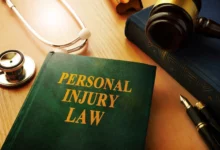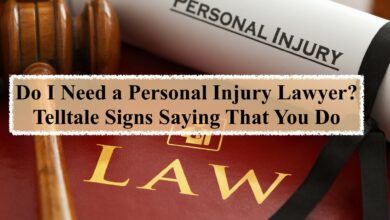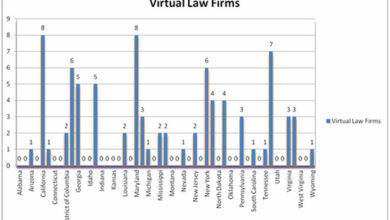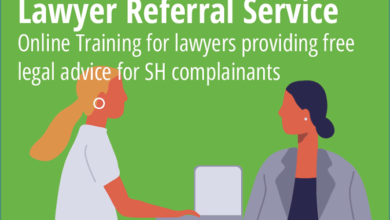Dealing with Legal Issues: Do I Need a Lawyer?
Legal issues can arise in various aspects of our lives, from personal matters to business endeavors. When faced with complex legal matters, many individuals find themselves wondering whether they need a lawyer or if they can handle the situation on their own. While it may be tempting to save money and navigate the legal system independently, there are several key factors to consider before making this decision. In this article, we will explore the importance of legal representation, the potential consequences of not hiring a lawyer, and when it is appropriate to seek professional assistance.
The Complexity of the Legal System
The legal system is intricate and multifaceted, with a vast array of laws, regulations, and procedures. Navigating through this complex web can be overwhelming for individuals without legal training or experience. Laws can vary by jurisdiction, and even seemingly straightforward cases can involve nuanced interpretations. Without a thorough understanding of the legal system, attempting to handle legal matters independently can be a recipe for disaster.
For example, let’s consider a divorce case. While you may be familiar with the general concept of divorce, the legal process can involve numerous complexities such as property division, child custody, and spousal support. A divorce attorney can provide guidance on legal requirements, help negotiate fair settlements, and protect your rights throughout the process.
The Importance of Legal Representation
One of the primary reasons to consider hiring a lawyer is the expertise they bring to the table. Lawyers undergo years of education and training to develop a deep understanding of the law and legal procedures. They have the skills and knowledge necessary to analyze your case, identify potential legal issues, and develop a strategic approach.
Beyond their legal expertise, lawyers also possess invaluable negotiation and advocacy skills. They can effectively communicate with opposing parties, negotiate settlements, and present your case in court if necessary. This can significantly impact the outcome of your legal matter, increasing the likelihood of a favorable result.
Furthermore, lawyers have access to a network of resources that can be instrumental in building a strong case. They can engage expert witnesses, gather evidence, and consult with other legal professionals to strengthen your position. These resources are often not readily available to individuals representing themselves.
The Consequences of Not Hiring a Lawyer
Opting not to hire a lawyer can have severe consequences that can negatively impact your personal and financial well-being. Without legal representation, you may be at a significant disadvantage when dealing with opposing parties who have lawyers. They can exploit your lack of legal knowledge and potentially manipulate the situation to their advantage.
Legal matters often involve high stakes, and making even a minor mistake can have lasting repercussions. For example, in a criminal case, failing to understand and exercise your rights can result in wrongful convictions or unnecessarily harsh sentences. In a civil dispute, inadequate representation can lead to financial losses or being held liable for damages.
Additionally, legal procedures can be complex and time-consuming. Without a lawyer, you may struggle to navigate the necessary paperwork, meet deadlines, and fulfill procedural requirements. This can significantly delay the resolution of your case, leaving you in a state of limbo and prolonging the stress and uncertainty.
When to Seek Professional Assistance
While hiring a lawyer is not always necessary, there are certain situations where seeking professional assistance is highly recommended:
- Complex legal matters: If your case involves intricate legal concepts or multiple legal issues, it is advisable to consult with a lawyer. They can provide clarity and develop a comprehensive strategy.
- High stakes: When significant consequences are at stake, such as large financial losses or potential imprisonment, it is crucial to have a lawyer by your side to protect your rights and advocate on your behalf.
- Unfamiliarity with the legal system: If you have little to no knowledge of the legal system or lack experience in handling legal matters, hiring a lawyer can help level the playing field and ensure you have a fair chance.
- Opposing party representation: If the opposing party has legal representation, it is wise to seek your own lawyer to balance the scales and avoid being taken advantage of.
- Peace of mind: Even in less complex cases, having a lawyer can provide peace of mind, knowing that you have a legal expert guiding you through the process and protecting your interests.
Conclusion
When faced with legal issues, the decision of whether to hire a lawyer is not one to be taken lightly. The complexity of the legal system, the importance of legal representation, and the potential consequences of not hiring a lawyer all highlight the significance of seeking professional assistance. While there are situations where individuals may choose to handle legal matters on their own, it is crucial to carefully consider the specific circumstances and consult with a lawyer when in doubt.
FAQs
1. Can I represent myself in court?
Yes, you have the right to represent yourself in court, but it is generally not recommended. The legal system can be complex, and even seemingly straightforward cases can have hidden complexities. Hiring a lawyer can significantly improve your chances of achieving a favorable outcome.
2. How much does hiring a lawyer cost?
The cost of hiring a lawyer can vary depending on various factors, such as the complexity of the case, the lawyer’s experience, and the geographic location. Lawyers typically charge an hourly rate or a flat fee for specific services. It is essential to discuss fees and payment arrangements with your lawyer before engaging their services.
3. What if I cannot afford a lawyer?
If you cannot afford a lawyer, you may be eligible for free or low-cost legal assistance. Many jurisdictions have legal aid organizations that provide legal services to individuals who meet specific income criteria. You can also inquire about pro bono services or seek advice from legal clinics or community organizations.
4. Can I hire a lawyer only for specific tasks?
Yes, you have the option to hire a lawyer for limited-scope representation. This means that the lawyer will only handle specific tasks or aspects of your case, rather than providing full representation. Limited-scope representation can be a cost-effective solution for individuals who only require assistance with certain aspects of their legal matter.
5. How can I find a reputable lawyer?
Finding a reputable lawyer can be crucial to the success of your case. You can start by seeking recommendations from friends, family, or colleagues who may have had positive experiences with lawyers in the past. Online directories and bar association websites can also be valuable resources to find qualified lawyers in your area. When considering potential lawyers, be sure to review their credentials, experience, and client reviews to make an informed decision.
Summary
When facing legal issues, the decision of whether to hire a lawyer requires careful consideration. The legal system’s complexity, the crucial role of legal representation, and the potential consequences of not having a lawyer all point to the importance of seeking professional assistance. While there may be situations where individuals can handle legal matters independently, it is advisable to consult with a lawyer when facing complex cases, high stakes, or unfamiliarity with the legal system. Ultimately, hiring a lawyer can provide peace of mind, protect your rights, and increase your chances of achieving a favorable outcome in your legal matter.









